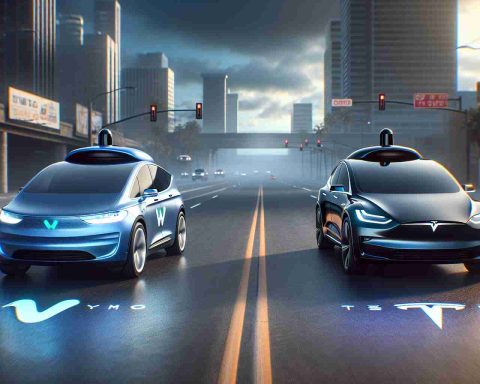The Wirral Council is taking bold steps to embrace electric vehicles. The local authority has unveiled an ambitious plan to establish a comprehensive charging infrastructure by aiming for 1,580 new electric vehicle (EV) charging points by the year 2030. This initiative specifically targets neighborhoods where residents lack personal driveways and off-street parking options.
As part of this community-focused project, residents are invited to share their thoughts through an online survey available until February 6, 2025. This survey empowers locals to recommend potential charging locations that will be evaluated for feasibility.
After gathering community insights, the council will hold another public consultation to finalize the sites before the installation is set to commence in autumn 2025. The project is backed by substantial funding, £9.6 million from the Liverpool City Region Combined Authority (LCRCA), allocated through the Local Electric Vehicle Infrastructure (LEVI) grant. This financial support is aimed specifically at enhancing EV facilities for households without off-street parking solutions.
With this strategy, the council is not just expanding charging options, but also promoting sustainable transportation. By facilitating easier access to EV charging, the initiative hopes to encourage a shift to electric vehicles, benefiting residents who depend on available public parking. The future of electric mobility in Wirral is poised for a significant transformation.
Wirral Council’s Bold EV Charging Initiative: A Step Towards Sustainable Transportation
Overview of Wirral Council’s Electric Vehicle Plans
The Wirral Council is making significant strides towards a sustainable future by planning to install 1,580 new electric vehicle (EV) charging points by 2030. This ambitious initiative is particularly targeted at neighborhoods with limited access to personal driveways or off-street parking, ensuring that residents without dedicated parking can still benefit from the rise of electric vehicles.
Community Engagement through Surveys
To ensure that the charging points meet the needs of the community, the council has launched an online survey that invites residents to suggest potential charging locations. This survey will remain open until February 6, 2025, reinforcing the council’s commitment to public consultation and community input. After gathering insights, the council plans to conduct a follow-up consultation to finalize the sites for the charging stations.
Funding and Support
This initiative is backed by a robust financial commitment of £9.6 million from the Liverpool City Region Combined Authority (LCRCA), sourced through the Local Electric Vehicle Infrastructure (LEVI) grant. This funding is crucial for enhancing EV facilities in areas lacking off-street parking, showing a strong governmental push for the adoption of electric vehicles.
Benefits of the Charging Infrastructure
The planned charging infrastructure aims to accomplish several goals:
– Encouraging Electric Vehicle Adoption: By improving access to charging facilities, the council hopes to inspire more residents to transition to electric vehicles.
– Sustainable Transportation: This initiative aligns with broader environmental goals by promoting cleaner transportation options, thus contributing to decreased emissions and improved air quality in the Wirral.
– Accessibility: Ensuring that residents without private parking can easily charge their vehicles is crucial in promoting inclusivity in the electric mobility transition.
Timeline and Future Steps
The installation of the new EV charging points is projected to begin in autumn 2025, following the community consultations. This timeline reflects the council’s strategic approach to integrating public input into the planning process while ensuring that the infrastructure is in place well before the 2030 target.
Pros and Cons of the Electric Vehicle Initiative
# Pros:
– Increased Accessibility: More charging points for residents without personal driveways.
– Environmental Benefits: Promotes a shift to electric vehicles, reducing carbon emissions.
– Community Involvement: Encourages local input and tailored solutions.
# Cons:
– Implementation Costs: Funding may be limited beyond the initial £9.6 million, which could affect future expansions.
– Infrastructure Challenges: The feasibility of installing charging points in certain areas may present logistical issues.
EV Charging Trends in the UK
The demand for electric vehicle charging infrastructure is rapidly increasing across the UK, reflecting a national trend towards sustainability and transportation innovation. As more cities adopt similar strategies, it will be interesting to see how the Wirral Council’s approach influences other local authorities to follow suit.
For more information on the Wirral Council’s initiatives, visit the official site.













